Selected, lightly-edited excerpts from Cassandra Brandt’s A Backslider’s Guide to Getting Over God: Journey of an Evangelical Apostate.

From Chapter 1: Daisies Tell About Jesus
I remember the smell of the songbook paper, and pushing my little fingers through the tiny communion cup holders on the backs of the burnt orange itchy fabric-covered pews.
I remember selling ‘Bible Times’ pita bread by the pulpit on the church stage during my first church play and whispering the words to ‘Away in a Manger’ into a big colourful mic there one Christmas. I remember folding my hands every night on my knees by my bed and saying sorry for my sins, and the hardcover Bible story collection with the colourful illustrations we kept in the hall linen closet.
I remember how much I loved Jesus.
To me Jesus was a version of my dad. Maybe it’s the same for most Christian girls with kind and present fathers. God was a little scary, but I tried to dismiss that thought fast because he could read my mind.
At first my indoctrination was mostly harmless: Bedtime prayers, brown beard painting of Jesus surrounded by the kiddos, Children’s Church.
I don’t remember the first time I heard the Pastor shout about the love and wrath of God in one breath.
Understanding and accepting God’s anger was as critical as accepting his love. We were shameful and sinful people destined for an afterlife of torture. I was told that my belief and dedication to my relationship with Jesus saved me from this eternal damnation, and in turn, my mission was to urge others to have that faith too.
Being a Christian was normal for me, but not everyone believed in Jesus. That’s why Christians had to spread the Good News. You didn’t want anyone else to end up in the fiery pits of Hell either.
I imagined myself in these African jungle scenarios…little kids with bellies bloated from hunger pulling at my skirt while I cooked soup and talked about Jesus. Yes, really.
Some Christians might hand out Bibles or witness to their neighbors, but I wanted to go big or go to Hell I guess, because by eight I was preaching to my classmates on the playground and saying I was going to be a missionary in foreign countries.
I imagined myself in these African jungle scenarios, makeshift kitchens with big leaves on the floor, those little kids with bellies bloated from hunger pulling at my skirt while I cooked soup and talked about Jesus. Yes, really.
This to me would be a soul-saving sacrifice as well as the ultimate adventure.
I was born in 1983 into an average White evangelical family that made up a quarter of the country in the nineties, a Protestant family in a small rural community where we mixed with Catholics but had little exposure to religions outside of Christianity.
Protestants are the biggest Christian bloc in the U.S. They split with the Roman Catholic Church and follow the principles of the Reformation, led by German monk and university professor Martin Luther (1483–1546).
The Reformation held that one’s eternal soul could be saved only by personal faith in Jesus Christ and the grace of God, rather than via prayers to saints and confessions to priests.
Consider terms like ‘born again’ (John 3:3) and narratives involving the prayer of salvation (Romans 10:9).
Some Protestants even came to rough it in colonial America, rather than feel like they were under the thumb of the Catholic Church. I’d gotten the notion that the nation was founded on my religion from the way that narrative had been spun for me.
I wasn’t just a mainstream Protestant but a fundamentalist and an evangelical.
A fundamentalist will insist that every word of the Bible is without error, while a mainline Protestant will concede that historical documents are susceptible to fallibility. Fundamentalists interpret scripture literally, complete with its outdated dogmas and Israelite ideology.
Evangelists busy themselves with the relentless recruitment of souls practised by salvation-based brands of Christian faith. Evangelize means ‘convert’.
From Chapter 4: The Evangelical Agenda
Regardless of any neurological factors fortifying my faith, once I grew old enough to reason, doubt, the most dangerous of all sins, crept in. Doubt could land you in Hell before you even opened your mouth or lifted a finger to sin against God or another person.
To a Pentecostal, nothing is to be respected and valued more than unwavering faith. Certainly not education or intelligence or even critical thinking.
You were supposed to ‘trust in God with all of your heart and lean not on your own understanding’ (Proverbs 3:5).
Knowledge was dangerous. Look what happened when the first humans dared seek it.
The essence of Christianity is told us in the Garden of Eden history. The fruit that was forbidden was on the tree of knowledge. The subtext is, All the suffering you have is because you wanted to find out what was going on.
Musician Frank Zappa
I struggled painfully with my faith in youth, but I didn’t let my doubt show, other than scribbling it over and over in my journals.
God, please take away my doubt; please open my eyes! I doubted three times today Jesus; please forgive me! I’m so sorry for doubting!!!
Faith was my biggest struggle, the incredible challenge of my life. My lack of it was my gravest, deepest, most mortal sin.
Without faith, Hebrews 11:6 assured me, it was impossible to please God.
Faith was my biggest struggle, the incredible challenge of my life. My lack of it was my gravest, deepest, most mortal sin.
I sought to solidify my salvation with the solidarity of other believers, tried to redeem and revive my soul by striking sin from my life. But I needed a louder voice in my mind, clarifying I wasn’t making it all up. As time went on I needed a more intense, more pronounced reprieve from guilt and a more ecstatic euphoria to wash over me in prayer and worship.
Now a new kind of joy and a whole ecosystem of knowledge has grown from the seed of doubt that was planted in my heart where I could never quite get that mustard seed to grow.
I have ceased to scream at myself in my mind, desperately trying to silence the voice of reason. I have silenced instead the voice of God.
From Chapter 7: Books Besides Bibles
For as far back as I can remember, I have loved books: reading them, writing them, collecting them, quoting them, smelling their sweet paper, smearing their ink with my tears.
I carried books to the playground at recess in elementary [school] and I took my textbooks home to devour poetry, history, and social studies in high school.
From a young age I could appreciate a well-crafted sentence, and I rarely grew bored of a story or a subject if the content was written well.
A vast wealth of literature had been off limits while I wasted countless hours perusing an old religious book instead!
There was time to make up for.
There was no Google to do research about religion when I was living that lie. Aside from, of course, books about other religions maybe, and academic papers perhaps, there wasn’t a lot of accessible literature published that challenged mainstream evangelical ideology. Prominent atheist figures weren’t podcasting yet.
When I began my quest for truth I spent endless hours in books besides Bibles, astonished and appalled at the sheer volume of information about the world I’d been so willing to remain oblivious to.
I kept my mind open, giving the theology I’d been fed and its apologists ample time to refute the new information I was swimming in. Their once compelling, convincing voices couldn’t hold up to the facts and perspectives presented by these historians and biologists.
Definitely one of the greatest perks of breaking free from an oppressive and controlling religion is that no information is off limits.
No books are banned.
Suddenly no fiction was off limits either: Dante, Nabokov, vampires, horror, trashy romance reads with women bursting out of corsets on the covers.
I could read academic material that had been forbidden, finally reading Darwin’s On The Origin of Species and exploring evolutionary science at last at age 23.
Suddenly I could eagerly accept scientific truths about the nature and workings of reality.
‘God used to be the best explanation we’d got, and we’ve now got vastly better ones.’
douglas adams
I was late to that table, much as humankind had been, attributing everything to the supernatural before scientific knowledge offered real answers—like we attributed sickness or healing to a god but now origins of ailments are evident because germ theory exists now.
I was born long after science filled in the gaps where gods stood in as placeholders, but like millions of other believers I’d been coerced to cling to them when they should have been discarded.
Like Douglas Adams said, ‘God used to be the best explanation we’d got, and we’ve now got vastly better ones.’ Embracing intellectual honesty at last was exciting!
From Chapter 10: Mind Rape
My child never shed a tear about Hell. She never shut herself in a closet and begged not to be hurt. She never had to feel shame for her own desires or unworthy of love because she had doubts about things that just didn’t make sense. She never had to reconcile in her mind the atrocities committed by someone she was supposed to love even more than she loved me.
At bedtime I tucked her in and told her to have dreams about candy castles and puppies and she never heard the words ‘brimstone’ or ‘gnashing of teeth’.
I love the moments when I speak of my Pentecostal past and she doesn’t have a clue what I’m talking about.
‘Wait, what’s a pew, Mom?’
My heart soars in those moments. She will never be a sinner seeking sanctification. I feel she’s a more rounded individual than I am, more emotionally stable.
I had a lot of anger and anxiety to work through, character traits developed after a youth of servitude under an imaginary authoritarian entity.
I taught my daughter early, about multiple religions. When she was five and six we talked about what animals we would like to come back as, if the reincarnation religions were right.
Let children learn about different faiths, let them notice their incompatibility, and let them draw their own conclusions about the consequences of that incompatibility. As for whether they are “valid,” let them make up their own minds when they are old enough to do so.
Richard Dawkins
Watching my daughter choose for herself, selecting biocentrism as her philosophy long before either of us had a name for it, and rejecting all religion, provided a boost of comfort and confidence that was very healing for me.
Society tends to assume religion is either benign or good for people. It’s a Sunday morning cultural tradition most Christians don’t think too hard about so they don’t have to reconcile their cognitive dissonance.
But while my peers were in Catechism reciting rosaries I was being brainwashed with brimstone by the Assembly of God.
One horrifying threat involving a lake of fire can have a profound effect on a developing mind.
Certain brands of fundamentalist faith that pound the original sin/eternal damnation ideology boast the gravest grievance against religious indoctrination.
A parent or preacher doesn’t even necessarily have to pound Hell into a child’s mind repeatedly to get the intended reaction. One horrifying threat involving a lake of fire can have a profound effect on a developing mind.
Richard Dawkins:
Who will say with confidence that sexual abuse is more permanently damaging to children than threatening them with the eternal and unquenchable fires of hell?
I am persuaded that “child abuse” is no exaggeration when used to describe what teachers and priests are doing to children whom they encourage to believe in something like eternal hell.
It’s not moral to lie to children. It’s not moral to lie to ignorant, uneducated people and tell them that if they only would believe nonsense, they can be saved. It’s immoral.
I wish I could explain to all those kids in Sunday School that the sensational, scary stories they’re being taught are not real.
There’s no scary God up there, intent on punishing sinners.
No eternal suffering awaits anyone for anything they say or do.
And no, their ‘sins’ did not contribute to the suffering of a nice, loving man.
Related reading
Surviving Ramadan: An ex-Muslim’s journey in Pakistan’s religious landscape, by Azad
How I lost my religious belief: A personal story from Nigeria, by Suyum Audu
From religious orthodoxy to free thought, by Tehreem Azeem
‘The best way to combat bad speech is with good speech’ – interview with Maryam Namazie, by Emma Park
Breaking the silence: Pakistani ex-Muslims find a voice on social media, by Tehreem Azeem
White Christian Nationalism is rising in America. Separation of church and state is the antidote. By Rachel Laser


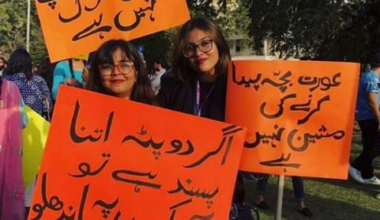
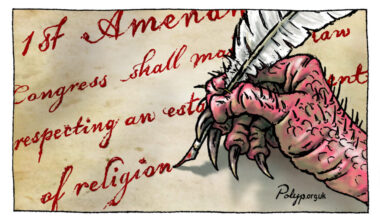
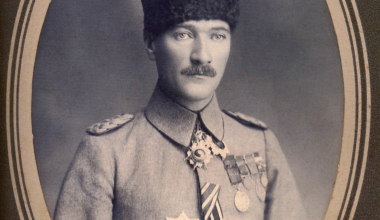
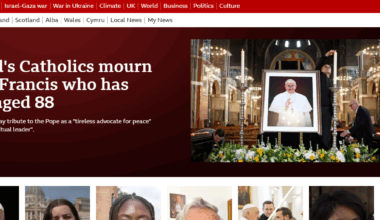
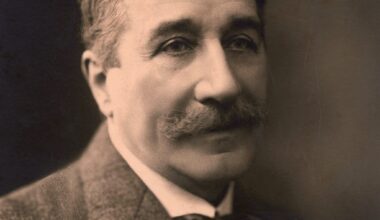
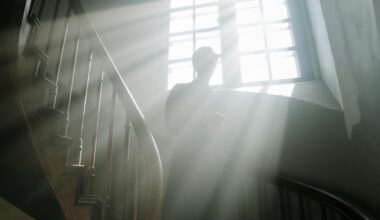
1 comment
I discovered Cassandra’s book quite accidentally whilst on social media and impulsively decided to order it via Amazon. I was not disappointed. This almost 300-pages long book opened my eyes to a reality that I had never imagined could still exist in the 21st century. An encouraging, mind-opening and deeply honest memoir. And one that I heartily recommend.
Your email address will not be published. Comments are subject to our Community Guidelines. Required fields are marked *
Donate